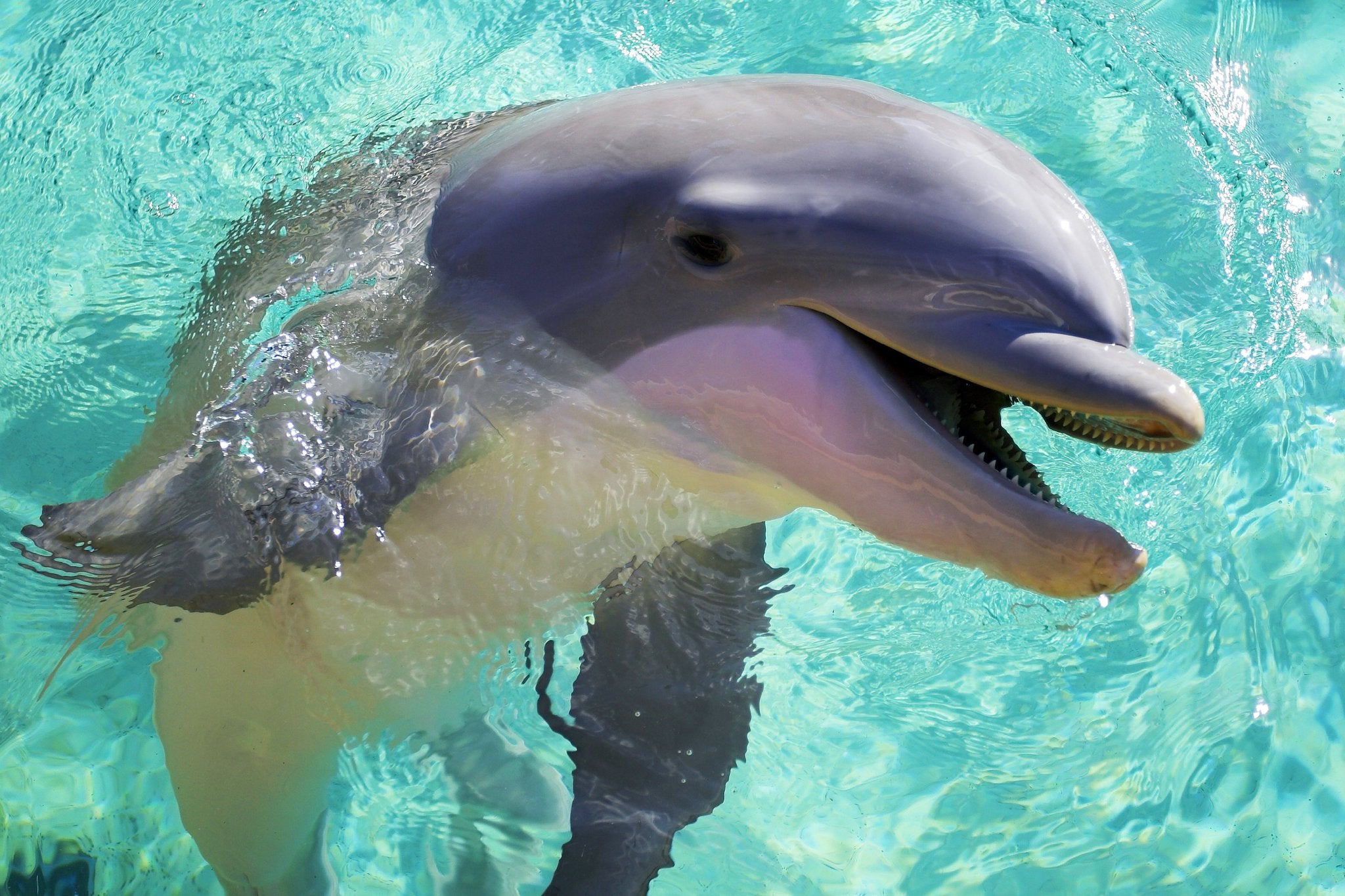Whales and dolphins 'squeal with delight like children', researchers claim
Scientists previously thought the sounds were communication or trained

Dolphins and whales squeal with delight “like children” when they are having fun, scientists have claimed.
Buzzing and squeaks have long been observed when captive animals are rewarded with food, as well as among wild animals, but were dismissed as a result of training or communication signals.
But new research, published in the Journal of Experimental Biology on Wednesday, suggests marine mammals make noises to express delight.
Sam Ridgway, president of the American National Marine Mammal Foundation, has observed the cetacean family, including whales, dolphins and porpoises, for decades.
Noticing they squealed every time they were rewarded with fish, his wife Jeanette suggested they reminded her of “delighted children” and he started to research why the noises were made.
Trainers working with captive dolphins and belugas let them know they will be rewarded with food with a buzz or whistle.
But Mr Ridgway noticed even when there was no food, the mammals would squeal in response to the sound associated with it.
Then even when there was no “reward” sound when they had completed a task like a deep dive, the dolphins and beluga whales would still squeal as if in a victory sign.
“The behaviour had transferred over to another stimulus that wasn't food,” he said.
As part of the study in San Diego Bay, California, two rescued belugas and a dolphin raised in captivity were trained to dive into the open ocean and turn off an artificial buzzer by pressing a button while underwater microphones recorded the sounds.
While still underwater, the animals made victory squeals right after they turned off the buzzer, well before coming up to the surface.
When mammals, including humans, get a reward, the chemical dopamine floods to the brain's pleasure centres.
It makes evolutionary sense for this to coincide with food to aid survival, Mr Ridgway said, but without food suggests pure enjoyment.
The researchers measured the time when the dolphins and whales in the study made their victory squeals and found that dolphins squealed 151 milliseconds after the reward signal and belugas did so 250 milliseconds later, suggesting it was in response to a dopamine surge.
As dopamine release takes between 100 and 200 milliseconds, Mr Ridgway realised that the animals could be expressing pleasure.
He is using the research to look into the cognitive abilities of cetaceans in greater depth.
“We think we have demonstrated that it [the victory squeal] has emotional content,” he said.
Join our commenting forum
Join thought-provoking conversations, follow other Independent readers and see their replies
Comments